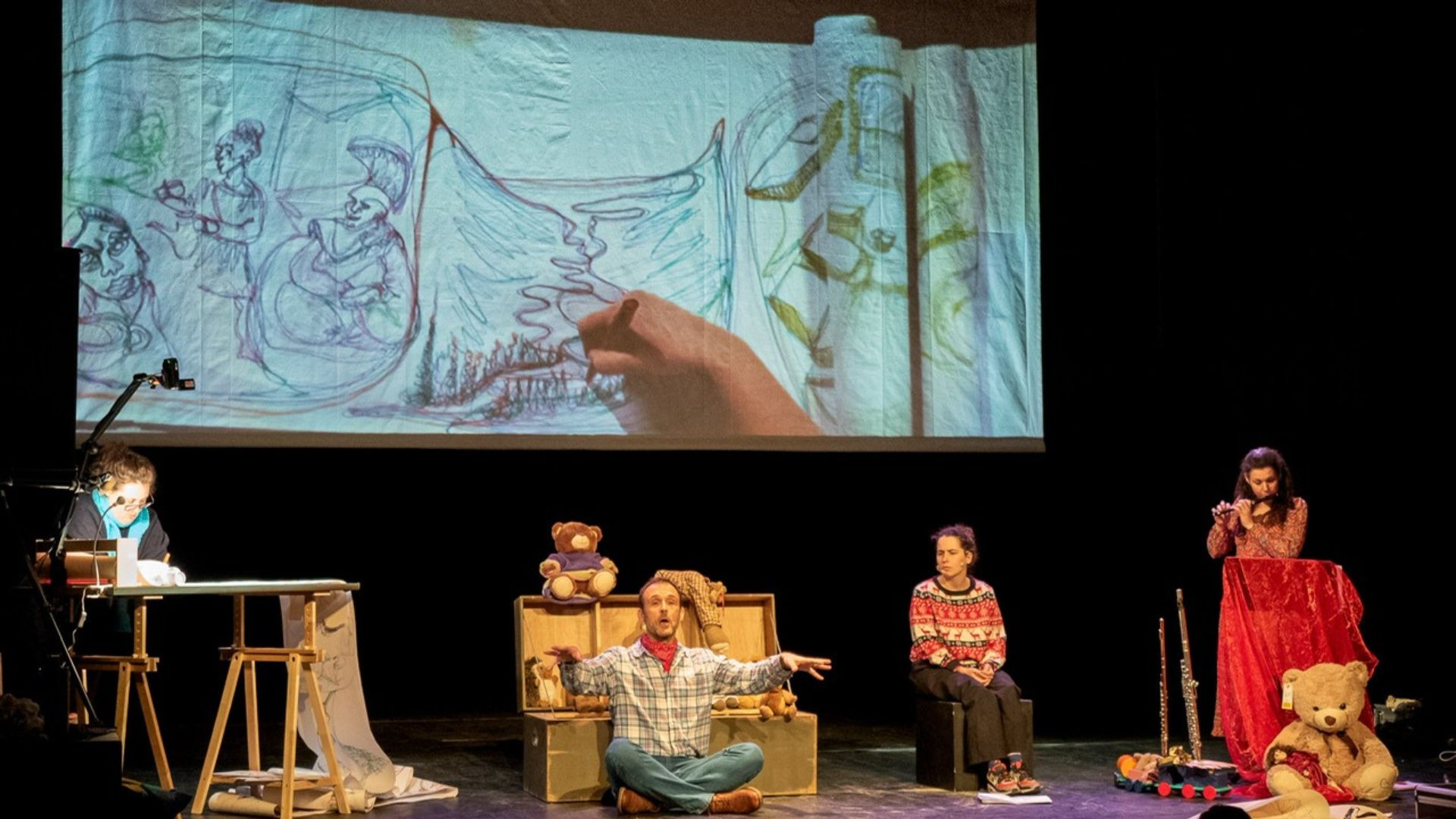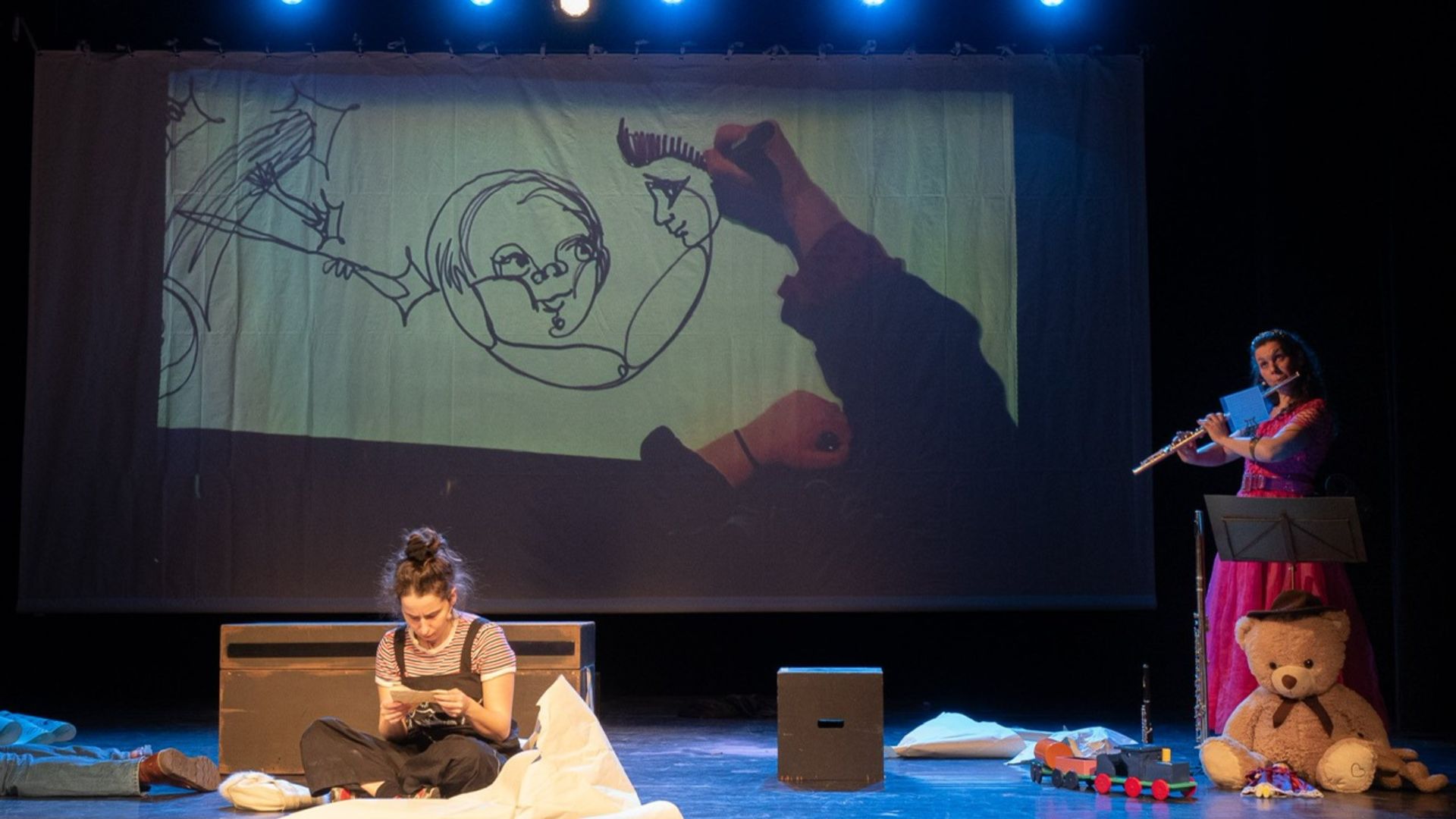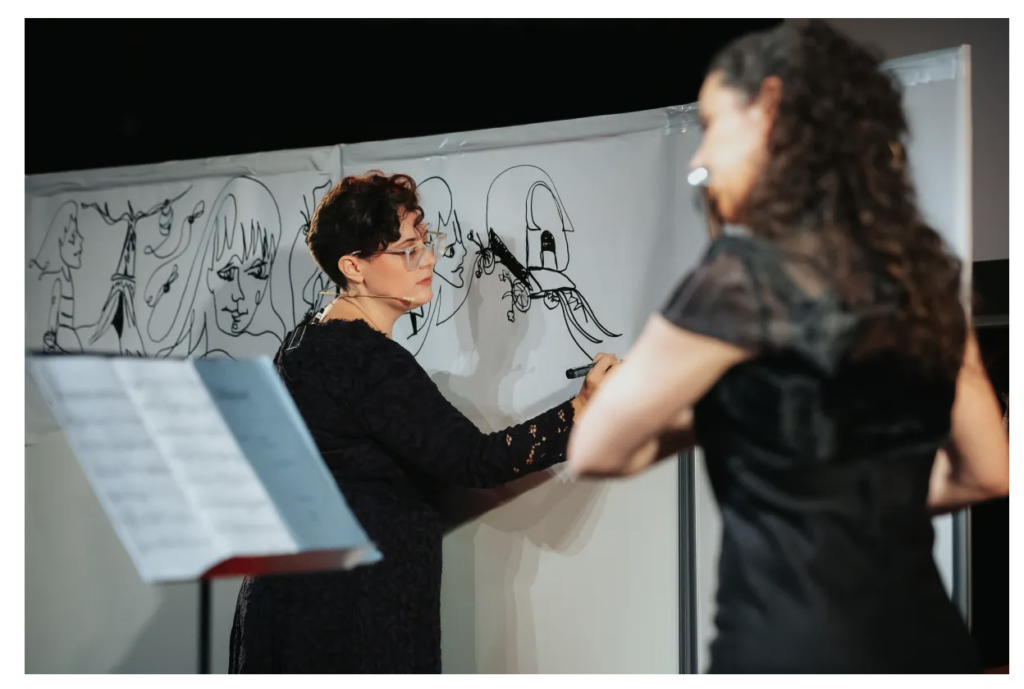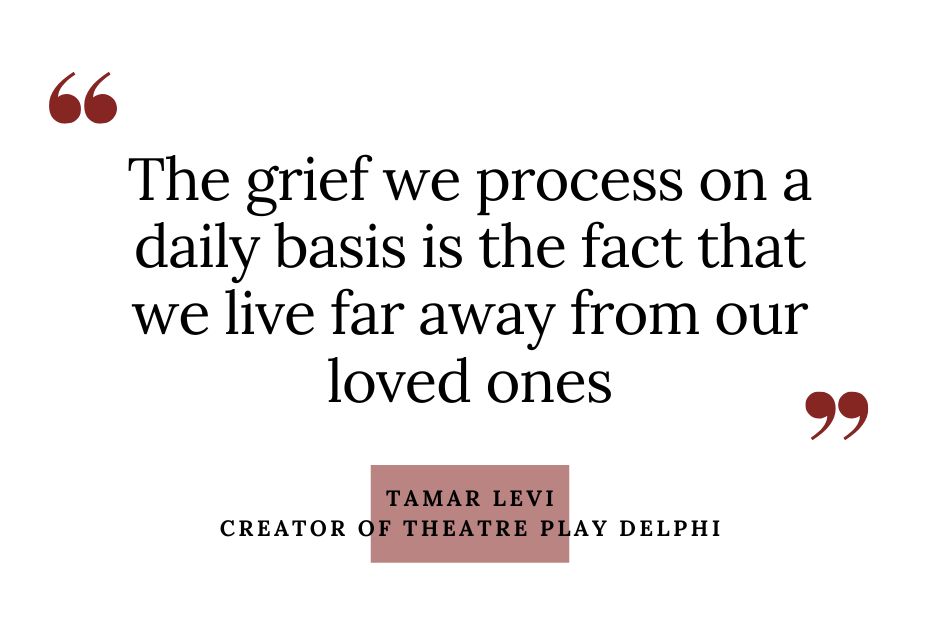Delphi is a multidisciplinary theatre play which combines art, music and acting to help children and their parents through feelings such as grief which many children experience growing up.
While Brussels is a dynamic city rich in different cultures and languages, with a large expatriated population, children process the new and changing surroundings of the city very differently – and often need help processing these feelings.
It was this notion that inspired writer and illustrator Tamar Levi to create Delphi. Originally a graphic novel and adapted into a children's play, the idea behind it was to fill in the gap, where she felt children and families were not sufficiently supported on what she refers to as children's "big feelings". She noted that while love was a safe and frequent topic, heavier topics such as grief tend to be taboo for discussions in families with children.
On that note, Levi wanted to create something to help parents and their children navigate grief together. As she is primarily a children's book illustrator and artist, her own art form became the medium to tell that story.

Credit: Andrea Minoia
Although she now lives in Brussels, Levi's childhood was coloured with the mythology from her home in Alaska. In discussions with her Greek husband, Levi noticed the differences in the mythology and folklore they both had grown up with. With a deepened curiosity of folklore, she wanted to tell the story of Delphi through the lens of different cultural mythologies.
Loosely based on the five phases of grief defined by psychology, Delphi tells the story of a little girl who travels the world and processes her "big feelings" through the cultures and myths of the different nations she visits. Levi wants to clarify that the states of grief are not prescriptive and may be experienced differently by individual people.
Delphi's journey is illustrated live by Levi, who will portray the protagonist's journey through one-line drawings. Actors provide verbal context in French, while flute player, Kalliopi Bolovinou, will combine contemporary and classical music.
When asked by The Brussels Times why she feels children in Brussels might benefit from Delphi's story, Levi explained the context of living in a city like Brussels. "The grief we experience is not necessarily about death," she explained. "I would say that the grief we process on a daily basis is the fact that we live far away from our loved ones."
Children in Brussels often grow up without their cousins or grandparents, and are constantly having to say goodbye to friends whose parents find jobs in another country, leaving them and Brussels behind.
Processing these feelings can be tough on children. Levi hopes that Delphi, finding a way to cope with big feelings by writing her own story, will inspire children to do the same. "I would love if children recognise that their diversity is special, and that their parents' cultures are special, but ultimately that they within themselves, are also special."
My art is a buffet
Levi included many mediums into her play, which she affectionately called a buffet. "I keep telling the actors that this [play] is a buffet. It has art, music, dance, jokes, travel, anger, shouting, quiet time, and sleepy time; and a child might find the thing they are attracted to, to be a helpful method as they process their own feelings." Her hopes are that children will see the elements of the play and try them at home with their parents.
For Levi, the point of theatre is to help the audience reach a catharsis, which she explained is a term coined during a lecture by Aristotle which refers to expressing emotions and finding acceptance by doing so. Levi shares Aristotle's belief that theatre is an important tool to reach catharsis and think about one's own journey through grief and other big feelings.
The creator of Delphi hopes that children will leave the play and want to try out one of the different art forms in it. She explained that sometimes, by doing art, people also reach a point of catharsis and parents can use these calm meditative moments to open up conversations with their children.

Credit: Andrea Minoia
Theatres who have seen the play have suggested an age group of eight to 12 years old. However, Levi's daughter is six years old and her friends range from five to eight years old and they have all seen the play with their parents, who have provided positive feedback.
Levi's daughter said: "It's good to teach kids how to hold their big feelings. If no one teaches you how to brush your teeth you don't know how to brush your teeth."
The illustrator believes that it is only a parent who truly knows if their child is emotionally ready to deal with topics like grief. For example, whether they are ready to watch Disney films Bambi or the Lion King. If not, she thinks that the child might not yet be ready to watch the play.
Related News
- Screening from harm: Brussels to promote offline parent-child interactions
- 'Double victims': Survey highlights worrying effects of pandemic on children
However, it is not only children who can appreciate the play. Levi has more than once been approached by a teary-eyed adult who was touched by elements of the play and she, therefore, does not want to limit Delphi to any one group – although her primary goal of assisting children through their big feelings remains firmly in place.
While the play's script is French, Levi explained that through the music and live drawings, the audience will be able to follow in any language, and may only miss a few jokes made in French. The play will be performed on 26 March. The ticket price is based on donations between €8 and €25. It is produced by a team at Kaléidoscope asbl and director Cécile Delberghe.
A performance will be held on Sunday 26 March at 15:00 the Columban Theatre, Chemin de Vieusart 162, Wavre. Future planned productions will be held in different locations in Brussels.


